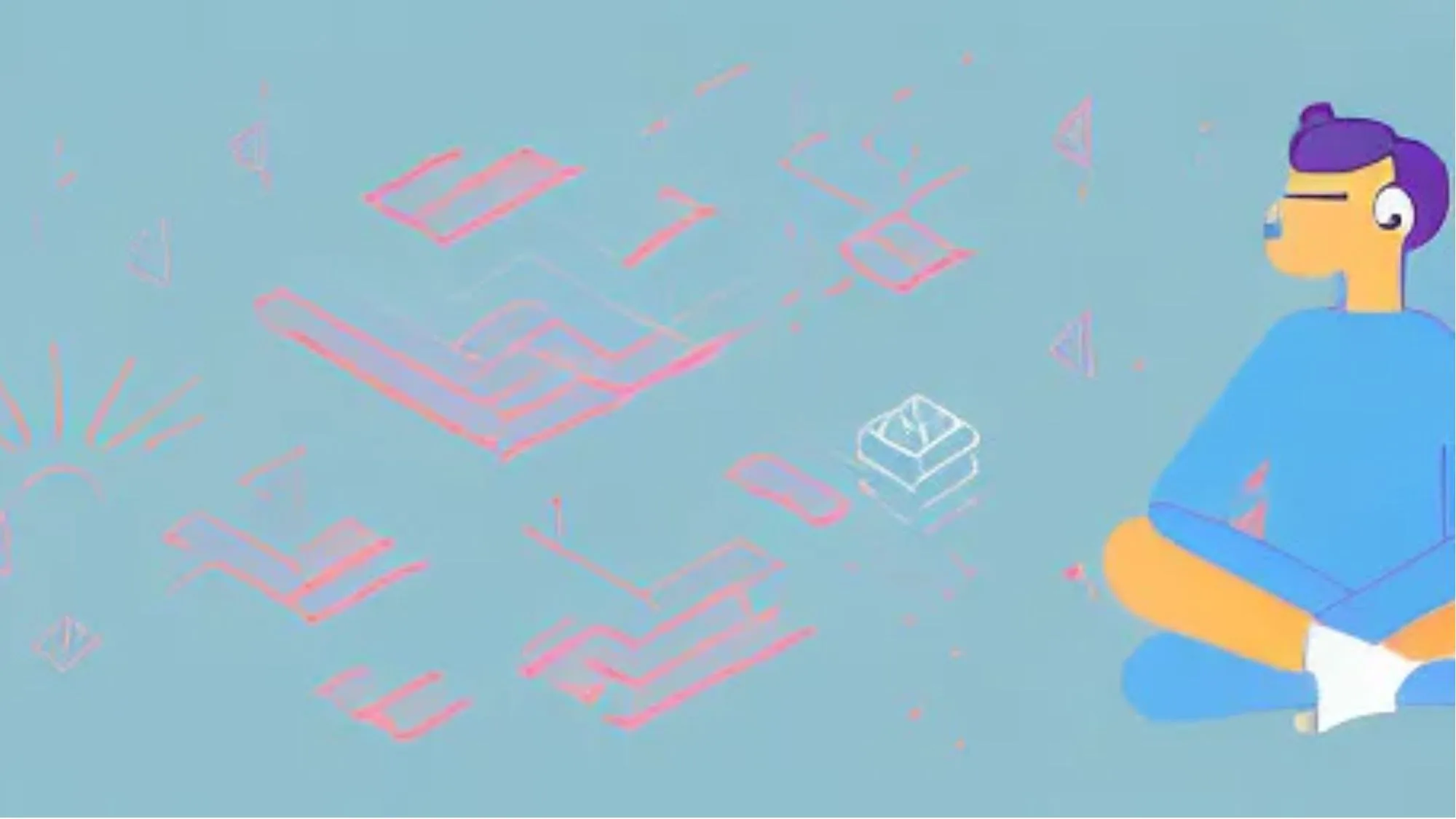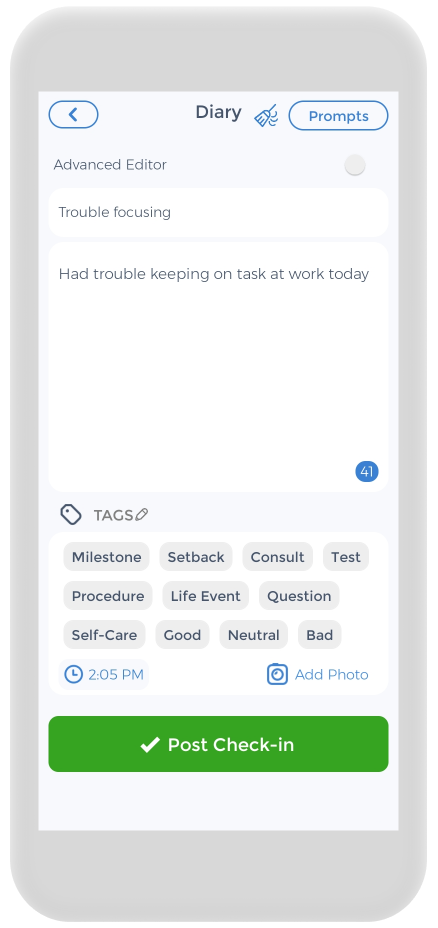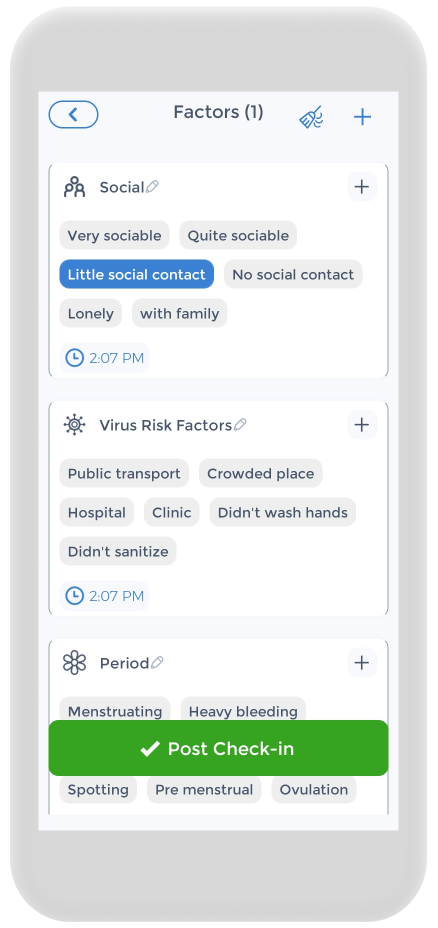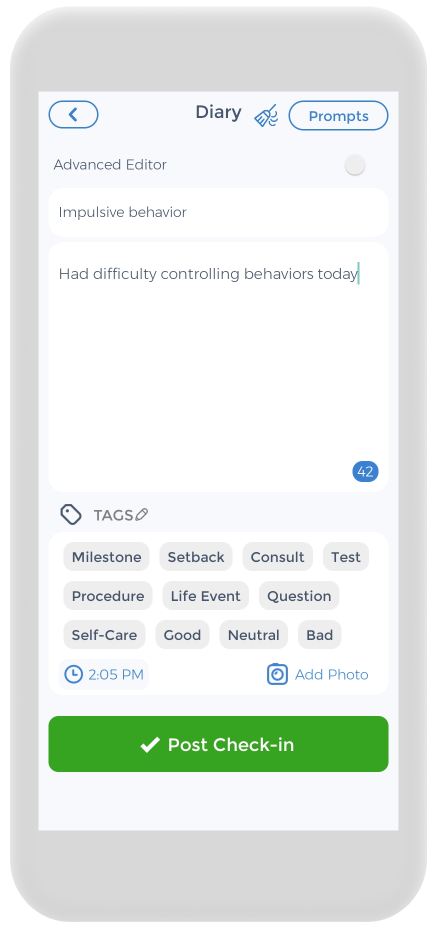
Attention Deficit Hyperactivity Disorder (ADHD) and Anxiety are two commonly diagnosed mental health conditions that often coexist. While they are separate disorders, they can have a significant impact on a person’s daily life and overall well-being. In this article, we will explore strategies for managing both ADHD and anxiety, helping individuals cope with mental disorders and live a balanced life.[1]
Understanding ADHD
Before diving into coping strategies, it is essential to understand the nature of ADHD and anxiety. ADHD, or Attention Deficit Hyperactivity Disorder, is a neurological condition characterized by difficulties with attention, impulse control, and hyperactivity. On the other hand, anxiety disorder refers to a mental health condition where individuals experience excessive worry, fear, and nervousness.
ADHD affects individuals of all ages and can have a significant impact on daily functioning. Adults with ADHD often struggle with staying focused, organizing tasks, and managing time. Additionally, they may exhibit impulsive behaviors and have trouble concentrating, trouble focusing, or sitting still for extended periods.[2][3]
Understanding Anxiety
Anxiety is a common mental health disorder that affects millions of individuals worldwide. It manifests as excessive worry, fear, and restlessness, making one feel anxious and it challenging to carry out daily activities. Anxiety can be triggered by various factors, such as specific situations, events, or even generalized uncertainty.
as excessive worry, fear, and restlessness, making one feel anxious and it challenging to carry out daily activities. Anxiety can be triggered by various factors, such as specific situations, events, or even generalized uncertainty.
ADHD and Anxiety
Research has shown that there is a strong association between ADHD and anxiety disorders. In fact, individuals with ADHD are more likely to experience anxiety and develop anxiety disorders compared to their peers without ADHD. The exact reason for this link is still being studied, but some theories suggest that the difficulties in attention, impulsivity, and hyperactivity associated with ADHD may contribute to the development of anxiety disorders and make anxiety worse.
When it comes to ADHD, it is important to note that it is not just a childhood condition. Children with ADHD often continue to experience ADHD symptoms into adolescence and adulthood. This can have a significant impact on various aspects of life, including education, work, and relationships.
Similarly, social anxiety disorder is not limited to a specific age group. It can affect individuals of all ages, from children to older adults. The symptoms of this anxiety disorder can vary from person to person, but common manifestations include excessive worrying, difficulty concentrating, irritability, and physical symptoms such as rapid heartbeat and shortness of breath.
How to Treat ADHD and Comorbid Anxiety Disorders
Managing ADHD and anxiety requires a comprehensive approach that may include therapy, medication, and lifestyle modifications. Cognitive-behavioral therapy (CBT) is often recommended for individuals with ADHD and anxiety. CBT helps individuals identify and change negative thought patterns and behaviors that contribute to their symptoms of anxiety.
In addition to therapy, medication can be prescribed to manage ADHD and anxiety symptoms. Stimulant medications are commonly used to treat ADHD, while selective serotonin reuptake inhibitors (SSRIs) are often prescribed for treating anxiety disorders. It is important to work closely with a healthcare professional to find the right combination of therapy and medication for each individual.
Lifestyle modifications can also play a significant role in managing ADHD and anxiety. Regular exercise, a healthy diet, and sufficient sleep are essential for overall well-being and can help reduce symptoms. Additionally, implementing strategies such as creating a structured routine, using organizational tools, and practicing relaxation techniques can be beneficial.
Understanding the complexities of ADHD and anxiety is crucial for effective management. By seeking professional help and implementing appropriate strategies, individuals with ADHD and anxiety can lead fulfilling and productive lives.[4][5][6]
The Impact of ADHD and Anxiety on Daily Life
Living with ADHD and anxiety disorder can pose numerous challenges in various areas of life. It is crucial to recognize the impact of these conditions to create effective coping strategies.
ADHD, or Attention Deficit Hyperactivity Disorder, is a neurodevelopmental disorder characterized by difficulty in sustaining attention, hyperactivity, and impulsivity. Anxiety, on the other hand, is a mental health condition characterized by excessive worry and fear. When these two conditions simultaneously coexist, they exacerbate anxiety symptoms that can significantly impact a person’s daily life.
Effects on Personal Relationships
 ADHD and anxiety can strain personal relationships, including those with their family members, friends, and romantic partners. Individuals with ADHD may struggle with forgetfulness, impulsivity, and inattentiveness, which can lead to misunderstandings and conflicts. They may unintentionally forget important dates or appointments, causing frustration and disappointment in their loved ones.
ADHD and anxiety can strain personal relationships, including those with their family members, friends, and romantic partners. Individuals with ADHD may struggle with forgetfulness, impulsivity, and inattentiveness, which can lead to misunderstandings and conflicts. They may unintentionally forget important dates or appointments, causing frustration and disappointment in their loved ones.
Anxiety, on the other hand, can cause excessive worry and fear, making it difficult to maintain healthy and fulfilling relationships. Individuals with anxiety may constantly doubt themselves and seek reassurance from their partners, which can be emotionally draining for both parties. The fear of rejection or constant feelings of abandonment can also lead to clinginess or avoidance behaviors, further straining the relationship.
It is essential for individuals with adult ADHD and anxiety to communicate openly with their loved ones, explaining the challenges they face and seeking their understanding and support. Couples or family therapy can also be beneficial in improving communication and developing strategies to navigate the difficulties associated with these conditions.
Impact on Professional Life
Coping with adult ADHD and anxiety in a professional setting presents its own set of challenges. Difficulties with attention, organization, and time management can affect productivity and success at work. Individuals with ADHD may struggle to stay focused during meetings or tasks, leading to missed deadlines or incomplete projects.
Anxiety may result in excessive stress and interfere with concentration, making it harder to perform job tasks effectively and there worsen anxiety symptoms. The fear of making mistakes or being judged by colleagues can be overwhelming, leading to avoidance behaviors or procrastination. This can hinder career growth and job satisfaction.
However, with the right support and accommodations, individuals with ADHD and anxiety can thrive in the workplace. Strategies such as creating a structured work environment, breaking tasks into smaller manageable steps, and practicing stress-reduction techniques can help improve focus and productivity. Seeking professional help, such as therapy or coaching, can also provide valuable guidance and support in managing these conditions at work.
Challenges in Everyday Tasks
Both ADHD and anxiety can make everyday tasks seem overwhelming. Simple activities like shopping or completing household chores can become a struggle. ADHD-related impulsivity may lead to poor decision-making, such as overspending or forgetting essential items while shopping. The constant racing thoughts, panic, persistent anxiety attacks and worry associated with anxiety can make even the simplest tasks feel daunting and exhausting and also make ADHD symptoms worse.
Developing effective coping strategies is crucial in managing these challenges. Breaking tasks into smaller, more manageable steps, creating to-do lists, and setting reminders can help individuals with ADHD stay organized and focused. For those with anxiety, practicing relaxation techniques, such as deep breathing or mindfulness, can help reduce stress and improve concentration.
Additionally, seeking support from friends, family, or support groups can provide encouragement and practical advice in navigating daily tasks. It is important to remember that everyone’s journey with ADHD and anxiety is unique, and finding what works best for each individual is key.[7][8][9][10][11][12][13][14]
Coping Strategies for Anxiety and ADHD
Living with ADHD and anxiety can present challenges, but there are strategies that can be employed to effectively cope with and minimize the impact of these conditions on daily life. By implementing a combination of behavioral therapy techniques, medication and treatment options, as well as making lifestyle changes, individuals can better manage their symptoms and improve their overall well-being.
Behavioral Therapy Techniques
Behavioral therapy, including Cognitive Behavioral Therapy (CBT), has been proven to be highly effective in treating both ADHD and anxiety. This therapeutic approach focuses on identifying negative thought patterns, developing coping skills, and implementing positive behavioral changes. Through therapy, individuals gain a better understanding of their conditions and learn healthy strategies for managing symptoms.
During CBT sessions, individuals work closely with a trained therapist who guides them through various exercises and discussions. These sessions provide a safe space for individuals to explore their thoughts and emotions, and to develop personalized coping mechanisms. By challenging negative thoughts and behaviors, individuals can learn to reframe their perspectives and develop healthier ways of managing stress and anxiety.
In addition to CBT, other behavioral therapy techniques such as mindfulness-based stress reduction (MBSR) and dialectical behavior therapy (DBT) can also be beneficial for individuals with ADHD and anxiety. These approaches focus on enhancing self-awareness, emotional regulation, and interpersonal skills.
Medication and Treatment Options
In certain cases, medication may be recommended to manage the symptoms of ADHD and anxiety. Stimulant medications, such as methylphenidate or amphetamines, are commonly prescribed as ADHD medication. These medications work by increasing the levels of certain chemicals in the brain, which can help improve focus, attention, and impulse control.
For anxiety, selective serotonin reuptake inhibitors (SSRIs) or benzodiazepines may be prescribed. SSRIs work by increasing the levels of serotonin in the brain, which can help regulate mood and reduce anxiety symptoms. Benzodiazepines, on the other hand, work by enhancing the effects of a neurotransmitter called gamma-aminobutyric acid (GABA), which helps calm the central nervous system.
It is important to note that medication should always be discussed with a healthcare professional, as they can assess the individual’s specific needs and determine the most appropriate course of treatment for similar symptoms. They will consider factors such as the severity of symptoms, potential side effects, and any existing medical conditions before prescribing medication.
Lifestyle Changes and Natural Remedies
In addition to therapy and medication, making certain lifestyle changes can greatly assist individuals in coping with ADHD and anxiety. Engaging in regular exercise, for example, has been shown to have numerous benefits for mental health. Exercise releases endorphins, which are natural mood boosters, and can help reduce symptoms of both ADHD and anxiety.
Practicing stress-reducing techniques, such as meditation or yoga, can also be incredibly helpful. These practices promote relaxation, mindfulness, and deep breathing, all of which can help individuals manage chronic stress and anxiety more effectively. Additionally, getting sufficient sleep and maintaining a balanced diet are crucial for overall well-being and symptom management.
Furthermore, there are natural remedies that some individuals find helpful in managing their symptoms of anxiety. These may include herbal supplements like chamomile or lavender, which are known for their calming properties. However, it is important to consult with a healthcare professional before incorporating any natural remedies into a treatment plan, as they can advise on potential interactions or side effects.
In conclusion, while living with ADHD and anxiety can be challenging, there are various coping strategies that can significantly improve daily life. By utilizing behavioral therapy techniques, considering medication and treatment options, and making lifestyle changes, individuals can effectively manage their symptoms and enhance their overall well-being.[15][16][17][18]
Tips for Managing ADHD and Anxiety at Home
ADHD treatment and anxiety management should extend beyond therapy sessions and medication. Implementing strategies at home can significantly contribute to overall well-being and symptom control.
Implementing strategies at home can significantly contribute to overall well-being and symptom control.
Living with ADHD and anxiety can present unique challenges, but with the right strategies, individuals can effectively manage their symptoms and thrive in their daily lives. In addition to therapy and medication, there are several practical steps that can be taken at home to create a supportive environment and promote well-being.
Creating a Structured Environment
Individuals with ADHD often thrive in an organized and structured environment. Creating a daily routine can help establish a sense of predictability and stability, providing a framework for the day. This routine can include specific times for waking up, eating meals, engaging in activities, and going to bed. By following a consistent schedule, individuals can reduce feelings of overwhelm and improve their ability to stay focused.
Visual schedules can also be incredibly helpful for individuals with ADHD. These schedules use visual cues, such as pictures or symbols, to outline the tasks and activities that need to be completed throughout the day. By having a visual representation of their schedule, individuals can better understand and follow the sequence of events, which can reduce anxiety and improve time management skills.
Organizing belongings is another important aspect of creating a structured environment. By designating specific places for items such as keys, wallets, and school supplies, individuals can reduce the time and stress associated with searching for misplaced items. Having a clutter-free space can also contribute to reduced anxiety levels, as a tidy environment can promote a sense of calm and focus.
Relaxation Techniques and Mindfulness Practices
Practicing relaxation techniques, rapid breathing, and mindfulness exercises can help individuals manage anxiety symptoms and enhance their overall well-being. Deep breathing exercises are a simple yet effective way to calm the mind and body. By taking slow, deep breaths and focusing on the sensation of the breath entering and leaving the body, individuals can activate the body’s relaxation response and reduce feelings of both anxiety and depression association well.
Progressive muscle relaxation is another technique that can be beneficial for managing anxiety. This practice involves tensing and then releasing different muscle groups in the body, promoting physical and mental relaxation. By systematically working through each muscle group, individuals can release muscle tension, and experience a deep sense of relaxation.
Mindfulness meditation is a practice that involves bringing one’s attention to the present moment without judgment. By focusing on the sensations of the breath, the sounds in the environment, or the physical sensations in the body, individuals can cultivate a greater sense of awareness and reduce anxiety. Regular mindfulness practice can also help individuals develop a more compassionate and accepting attitude towards their thoughts and emotions.
Encouraging Regular Exercise and Healthy Eating
Physical activity and proper nutrition play a crucial role in managing both ADHD and anxiety. Engaging in regular exercise can help release excess energy associated with ADHD and reduce anxiety levels. Exercise has been shown to increase the production of endorphins, which are natural mood-boosting chemicals in the brain. Whether it’s going for a run, practicing yoga, or playing a sport, finding an enjoyable form of exercise can have a positive impact on both physical and mental well-being.
In addition to exercise, maintaining a healthy, balanced diet can also positively impact mood and overall well-being. Foods rich in omega-3 fatty acids, such as salmon and walnuts, have been found to have a positive effect on brain health and may help reduce symptoms of ADHD and anxiety. Avoiding excessive consumption of caffeine and sugary foods can also contribute to more stable energy levels and improved focus.
By incorporating these strategies into their daily lives, individuals with ADHD and anxiety can create an environment that supports their well-being and enhances their ability to manage their symptoms. It’s important to remember that everyone is unique, and what works for one person may not work for another. Experimenting with different strategies and seeking support from healthcare professionals can help individuals find the most effective ways to manage their ADHD and anxiety at home.[19][20][21][22][23]
Seeking Professional Help for ADHD and Anxiety
While self-help strategies can be effective, it is important to seek professional help for managing ADHD and anxiety when needed. Consulting with a healthcare provider, therapist, or counselor can provide guidance and support throughout the treatment journey.
Living with ADHD and generalized anxiety disorder can be challenging, and it is important to know when to seek help. If you find that your symptoms are significantly interfering with your daily functioning or quality of life, it is crucial to reach out for professional assistance. Sometimes, despite our best efforts, self-help strategies may not be enough to effectively manage these conditions. Seeking help from a professional can provide you with the tools and strategies you need to navigate these challenges.
When to Seek Help
If ADHD or anxiety symptoms significantly interfere with daily functioning or quality of life, such as causing sleep disturbances, seeking help is crucial, especially when there are other coexisting disorders. It is also important to reach out if symptoms worsen or additional challenges arise. Sometimes, managing these conditions on your own can become overwhelming, and seeking professional help can offer the support and guidance you need to regain control of your life.
Remember, seeking help is not a sign of weakness but rather a brave step towards taking care of yourself and improving your overall well-being. It is okay to ask for help when you need it.
Finding the Right Therapist or Counselor
When seeking professional help, finding the right therapist or counselor is essential. Look for professionals experienced in treating ADHD and anxiety in order to receive effective and individualized care. It can be helpful to do some research and read reviews or ask for recommendations from trusted sources.
Consider factors such as their qualifications, experience in clinical practice, and therapeutic approach. It is important to find someone who makes you feel comfortable and understood, as building a strong therapeutic relationship is crucial for successful treatment outcomes.
Remember that finding the right therapist or counselor may take some time, so be patient with yourself during this process. It is worth investing the time and effort to find a serious health professional who can provide you with the support and guidance you need.
Support Groups and Community Resources
Support groups or community resources can provide valuable support and understanding when managing ADHD and anxiety. Connecting with individuals who share similar experiences can promote a sense of belonging and provide additional coping strategies.
Consider joining local support groups or online communities where you can share your experiences, learn from others, and receive support from individuals who truly understand what you are going through. These groups can provide a safe space for you to express yourself, ask questions, and gather valuable insights from others who have faced similar challenges.
Additionally, community resources such as workshops, educational programs, and online forums can provide you with additional tools and information to help you better manage your ADHD and anxiety. These resources often offer a wealth of knowledge and practical strategies that can complement the professional help you are receiving.
Remember, you are not alone in your journey. Seeking support from others who understand your struggles can make a significant difference in your overall well-being and ability to manage ADHD and anxiety.[24][25][26][27]
Using the CareClinic App to Help with ADHD
Keeping track of your health and medications is crucial. and the CareClinic app can help with that. You can use the app as your clinical journal. Just go to the diary section of the app and enter your daily symptoms, medications, and other triggers, as they occur. There are also specific sections on the app to track each of these. For example, if you have ADHD symptoms, you can track down symptoms you have on a daily basis.
The app also has a medication section where you can precisely track the doses of the pills you are taking and receive reminders. Whether you are taking stimulant medication or herbs for ADHD, we know how difficult but important keeping track of your medications is, so we hope to make it as easy and streamlined as possible. This way, you can take your medications and experience consistent relief.
Managing ADHD and anxiety requires a multifaceted approach that combines self-help strategies, professional guidance, and support from loved ones. By understanding the nature of these conditions, implementing coping strategies, and seeking appropriate help, individuals can live fulfilling lives and effectively manage their symptoms. Remember, it’s essential to celebrate progress and be patient with oneself throughout the journey of managing ADHD and anxiety.
⬇️ Download the CareClinic App
Sources
- Centers for Disease Control and Prevention. (2021). Attention-deficit/hyperactivity disorder (ADHD). Retrieved from https://www.cdc.gov/ncbddd/adhd/data.html
- Klarity (2023). ADHD Tools For Organization & Time Management https://www.klarityadhd.com/post/adhd-tools/
- MayoClinic (2023). Adult attention-deficit/hyperactivity disorder (ADHD). https://www.mayoclinic.org/diseases-conditions/adult-adhd/symptoms-causes/syc-20350878
- National Institute of Mental Health. (2021). Attention-deficit/hyperactivity disorder. Retrieved from https://www.nimh.nih.gov/health/topics/attention-deficit-hyperactivity-disorder-adhd/index.shtml
References
- “Comorbidity between ADHD and anxiety disorders across the lifespan – PubMed”. https://pubmed.ncbi.nlm.nih.gov/31232613/
- “ADHD in Adults: 4 Things to Know – National Institute of Mental Health (NIMH)”. https://www.nimh.nih.gov/health/publications/adhd-what-you-need-to-know
- “Anxiety Disorders – National Institute of Mental Health (NIMH)”. https://www.nimh.nih.gov/health/topics/anxiety-disorders
- “Epidemiology of anxiety disorders: global burden and sociodemographic associations | Middle East Current Psychiatry | Full Text”. https://mecp.springeropen.com/articles/10.1186/s43045-023-00315-3
- “Anxiety disorders in adult ADHD: A frequent comorbidity and a risk factor for externalizing problems – PubMed”. https://pubmed.ncbi.nlm.nih.gov/35152068/
- “ADHD (Attention Deficit Hyperactivity Disorder) | Anxiety and Depression Association of America, ADAA”. https://adaa.org/understanding-anxiety/related-illnesses/other-related-conditions/adult-adhd
- “Adult ADHD and Relationships – HelpGuide.org”. https://www.helpguide.org/mental-health/adhd/adult-adhd-and-relationships
- “Understanding ADHD and Fear of Intimacy: Why We Push Loved Ones Away – ADD Resource Center”. https://www.addrc.org/understanding-adhd-and-fear-of-intimacy-why-we-push-loved-ones-away/
- “Relationships & Social Skills – CHADD”. https://chadd.org/for-adults/relationships-social-skills/
- “Functional Impairments Associated With ADHD in Adulthood and the Impact of Pharmacological Treatment – PMC”. https://www.ncbi.nlm.nih.gov/pmc/articles/PMC10173356/
- “Stress and work-related mental illness among working adults with ADHD: a qualitative study – PMC”. https://pmc.ncbi.nlm.nih.gov/articles/PMC9714234/
- “Workplace Mental Health – AD/HD in Adults”. https://workplacementalhealth.org/mental-health-topics/ad-hd-in-adults
- “How ADHD Affects Relationships: Navigating Together | LifeTimeHQ”. https://lifetimehq.com/how-adhd-affects-relationships/
- “Professionals With ADHD & Social Anxiety — Healthy Minds NYC”. https://www.healthyminds.nyc/blog/strategies-for-anxiety-and-adhd
- “Effectiveness of cognitive behavioural-based interventions for adults with attention-deficit/hyperactivity disorder extends beyond core symptoms: A meta-analysis of randomized controlled trials – PubMed”. https://pubmed.ncbi.nlm.nih.gov/36794797/
- “Adult attention deficit hyperactivity disorder”. https://en.wikipedia.org/wiki/Adult_attention_deficit_hyperactivity_disorder
- “The Exercise Benefit You Aren't Thinking About”. https://time.com/4352177/exercise-benefits-brain-and-mood/
- “For Social Anxiety, Therapy Beats Antidepressants”. https://time.com/3431098/cbt-social-anxiety/
- “10 Effective Strategies for Managing ADHD at Home”. https://www.achievepsychology.org/post/10-effective-strategies-for-managing-adhd-at-home
- “Tips for Managing Adult ADHD | BestMind Behavioral Health”. https://bestmindbh.com/blog/tips-for-managing-adult-adhd/
- “Mastering ADHD: Everyday Coping Skills for a Balanced Life”. https://animosanopsychiatry.com/mastering-adhd-everyday-coping-skills-for-a-balanced-life/
- “12 Essential ADHD Best Practices for Better Mental Health”. https://www.clearpathadhd.com/post/adhd-best-practices-guide
- “Tips for Managing Adult ADHD – HelpGuide.org”. https://www.helpguide.org/mental-health/adhd/managing-adult-adhd
- “Signs It's Time To Seek Professional Help For Anxiety – OPA Behavioral Health”. https://opabh.com/signs-its-time-to-seek-professional-help-for-anxiety/
- “Adult ADHD Complications | 7 Symptoms Never to Ignore With Adult ADHD”. https://resources.healthgrades.com/right-care/adhd/7-symptoms-never-to-ignore-with-adult-adhd
- “Diagnosis of ADHD in Adults – CHADD”. https://chadd.org/for-adults/diagnosis-of-adhd-in-adults/
- “An In-Dept Guide to ADHD and Anxiety Treatment – Moriah Behavioral Health”. https://www.moriahbehavioralhealth.com/adhd-and-anxiety-treatment/


